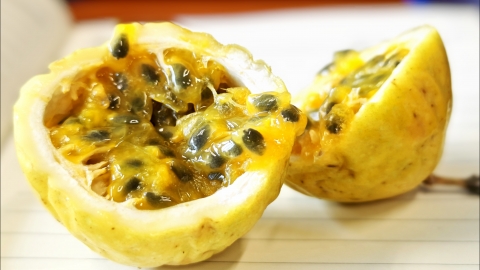Can diabetics eat passion fruit?
Generally, diabetic patients can eat passion fruit, but should consume it in moderation. Detailed analysis is as follows:

Passion fruit contains abundant dietary fiber, which can delay the absorption of sugar and help reduce the post-meal rise in blood glucose levels, preventing significant fluctuations in blood sugar. It also contains nutrients such as vitamin C, potassium, and magnesium, which help supplement necessary nutrients and maintain normal metabolic functions. Fresh passion fruit has a relatively low sugar content and a low glycemic index. Consuming it in moderation can serve as a daily fruit choice to satisfy sweet cravings without significantly affecting blood glucose control.
When consuming passion fruit, it is important to strictly control the amount eaten—ideally one to two medium-sized fruits at a time—to avoid excessive sugar intake all at once. It is recommended to eat it directly or mix it with warm water; never add extra sugars such as white sugar or honey, to prevent spikes in blood sugar. Avoid consuming processed passion fruit products like dried passion fruit or passion fruit jam, as these are often concentrated or contain added sugars, which may cause rapid increases in blood glucose levels. If blood sugar control is unstable or if there are severe complications, consult a doctor or dietitian before consumption. After eating, monitor blood sugar changes and maintain a balanced diet to assist in managing blood glucose levels.










